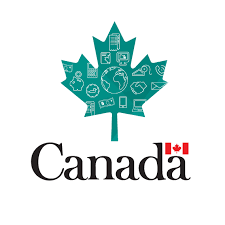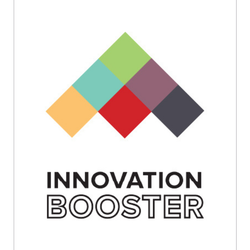
New Frontiers in Research Fund — Transformation Stream
At a glance
- No Condition
- Open Date : September 5, 2024
- Closing date : September 10, 2024
- All industries
- Canada
- Non-profit
- Public or Parapublic institution
- For-profit business
- All revenue ranges
- All organization sizes
- Indigenous Peoples
- Persons with Disabilities
- Other Racialized Persons
- Canadians
- Women
- Higher Education
- Research
- Environment
- Economic, Social and Community Development
- Diversity and Inclusion
- General public
- Indigenous peoples
- People with disabilities
- Women & girls
- Academia / students
- Minority groups
- All structures
- National
- International
Overview
The NFRF 2024 Transformation competition is designed to support large-scale, Canadian-led interdisciplinary research projects that address significant challenges with the potential to create lasting change, whether through scientific breakthroughs or social, economic, environmental, or health impacts. While the maximum funding amount is not specified in the excerpt, eligible activities focus on projects that promise high rewards, are feasible, and possess the potential to be transformative.
Activities funded
The New Frontiers in Research Fund (NFRF) Transformation stream is designed to support large-scale, interdisciplinary research projects in Canada. These projects should address major challenges and have the potential to achieve significant and lasting change, with a focus on high reward outcomes.
- Projects leading to scientific breakthroughs or solving fundamental challenges.
- Interdisciplinary initiatives with global research collaboration.
- Research impacting social, economic, environmental, or health outcomes.
- Initiatives promoting world-leading approaches to complex issues.
- Projects involving Indigenous research in accordance with SSHRC guidelines.
Eligibility
Eligibility for this grant is determined by the following criteria related to the applicant's capacity to lead an interdisciplinary research project addressing a major challenge.
- Applications must be Canadian-led and demonstrate a high potential for scientific, social, economic, environmental, or health-related impact.
- Projects should involve interdisciplinary research that brings in diverse perspectives and expertise from various fields.
- Applicants must demonstrate the potential to achieve a significant breakthrough or transformative change.
- Applications are expected to collaborate with global research experts where relevant to meet world-leading standards.
Who is eligible?
The 2024 Transformation competition under the New Frontiers in Research Fund (NFRF) is open to large-scale, Canadian-led interdisciplinary research projects that aim to tackle significant challenges with the potential for transformative impact. The projects must be world-leading, and applicants must adhere to various merit indicators used throughout the evaluation stages.
- High Risk: Projects must propose novel, world-leading approaches that diverge from current state-of-the-art solutions - 20% of the overall score at the LOI stage and 25% at the full application stage.
- High Reward: Projects should have the potential for a transformative impact, suggesting a significant and real change rather than an incremental advance - 60% of the overall score at the LOI stage and 25% at the full application stage.
- Feasibility: The practicality of achieving the project's goals with the proposed approach - 20% of the overall score at the LOI stage and 50% at the full application stage.
- Interdisciplinarity: The synergy and integration of multiple disciplines in the project are crucial. This is assessed on a pass/fail basis.
- Equity, Diversity, and Inclusion in Research Practice (EDI-RP) / Early Career Researcher (ECR) considerations: Ensures that the project incorporates diverse perspectives - assessed on a pass/fail basis.
- Budget: While not a primary selection criterion, feasibility includes the assessment of whether the proposed budget aligns with the project goals and adheres to eligible expense guidelines.
Eligible expenses
This grant focuses on supporting large-scale, interdisciplinary research projects led by Canadians. It seeks projects that address major challenges and have the potential to bring about significant and lasting change, whether through scientific breakthroughs or impactful applications in social, economic, environmental, or health sectors.
- Research projects aiming for scientific breakthroughs or practical applications that tackle significant challenges.
- Large-scale interdisciplinary initiatives that integrate global research expertise and are world-leading in nature.
- Projects that demonstrate high-risk and high-reward characteristics with transformative impacts.
Selection criteria
The evaluation and selection of projects for the 2024 Transformation competition under the NFRF is conducted based on specified criteria with allocated point scores to ensure that the projects meet the intended transformative impact objectives.
- High Risk: 20% of overall score
- High Reward: 60% of overall score
- Feasibility: 20% of overall score
- Interdisciplinarity: Pass/Fail
- Equity, Diversity, and Inclusion in Research Practice (EDI-RP) / Early Career Researcher (ECR): Pass/Fail
How to apply
Preliminary Registration
- Create an account on the Convergence Portal.
- Complete the biographical information section, including fields of research in your personal profile.
Letter of Intent (LOI)
- Prepare and submit the LOI by January 10, 2024.
- Ensure the LOI details the project's high risk, high reward, and feasibility factors.
- Include interdisciplinarity and equality, diversity, and inclusion in research practice (EDI-RP) elements.
Full Application
- Upon approval of the LOI, prepare and submit the full application by September 5, 2024.
- Address all criteria, including high risk, high reward, feasibility, interdisciplinarity, and EDI-RP in detail.
Expert Review Process
Multidisciplinary/Multisectoral Review Panel Assessment
Jury Stage
Steering Committee Approval
Additional information
Here are additional relevant details for this grant:
- Applicants should demonstrate a commitment to diversity, which is a significant component in assessing project quality and decision-making processes at various stages.
- The grant includes a multi-stage review process: Letter of Intent (LOI) stage, Full Application stage, and Jury stage, each with specific deadlines and criteria focusing on high risk, high reward, and feasibility, as well as interdisciplinarity and EDI considerations.
- There are strict confidentiality and conflict of interest guidelines, which reviewers and participants involved in the evaluation need to adhere to, ensuring fairness and objectivity in assessment.
- Conflicts of interest must be declared and addressed promptly to maintain the integrity of the evaluation process.
- Applicants should not contact panel members regarding their application’s progress, as all communications and outcomes are strictly managed through official channels.
Contacts
Frequently Asked Questions about the New Frontiers in Research Fund — Transformation Stream Program
What is the New Frontiers in Research Fund — Transformation Stream?
How much funding can be received?
What expenses are eligible under New Frontiers in Research Fund — Transformation Stream?
What is the deadline to apply?
Is the New Frontiers in Research Fund — Transformation Stream a grant, loan, or tax credit?
Who are the financial supporters of the New Frontiers in Research Fund — Transformation Stream?
Who is eligible for the New Frontiers in Research Fund — Transformation Stream program?
Who can I contact for more information about the New Frontiers in Research Fund — Transformation Stream?
Where is the New Frontiers in Research Fund — Transformation Stream available?
Are women eligible for the New Frontiers in Research Fund — Transformation Stream program?
Are Indigenous Peoples eligible for the New Frontiers in Research Fund — Transformation Stream program?
More programs like this

Industrial Research Assistance Program (IRAP) — Financial Assistance
National Research Council Canada (NRC)
Scientific Research and Experimental Development (SR&ED) — Tax Incentive Program
Canada Revenue Agency (CRA)
Industrial Research Assistance Program (IRAP) – AI Assist
National Research Council Canada (NRC)
Clean Technology Manufacturing (CTM) Investment Tax Credit (ITC)
Canada Revenue Agency (CRA)
Strategic Innovation Fund (SIF)
Innovation, Science and Economic Development Canada (ISED)
AI-Powered Supply Chains Cluster (Scale AI)
Global Innovation Clusters (GIC)
AgriScience Program – Clusters
Agriculture and Agri-Food Canada (AAFC)
Industrial Research Assistance Program (IRAP) — Youth Employment Program (YEP)
National Research Council Canada (NRC)
CFIN Innovation Booster
Canadian Food Innovation Network (CFIN)